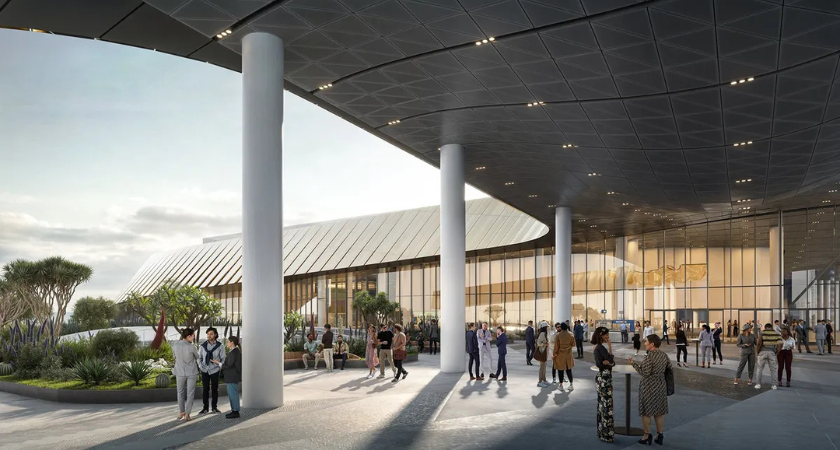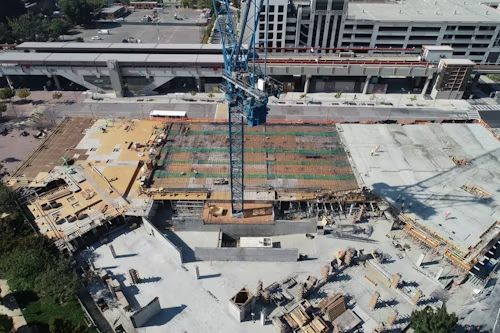
LOS ANGELES – The Los Angeles City Council has approved the long-debated $2.6 billion Convention Center Expansion and Modernization Project, clearing the way for one of the city’s most significant public construction undertakings as it prepares to host the 2028 Summer Olympics.

The project, led by PCL Construction, Webcor, and architect Populous, will merge the South and West Exhibit Halls into a single 750,000-square-foot hall by adding 190,000 square feet of new space. Plans also call for 39,000 square feet of new meeting rooms and 95,000 square feet of multipurpose facilities. The design-build effort is backed by partners AEG Facilities and the Plenary Group, according to city tourism officials.
While supporters say the expansion is essential to keeping Los Angeles competitive in the convention industry, the decision comes with significant fiscal risk.
According to City Controller Kenneth Mejia, the total taxpayer burden will climb to $5.9 billion once borrowing costs are factored in. The city’s General Fund will contribute $5.45 billion, with lease payments stretching from April 2029 through April 2056. Mejia cautioned that it may take until 2081 before the city breaks even.
“Due to the City’s consistent budgetary and financial problems with no real solutions for long-term fiscal health and uncertainties regarding the ambitious timeline of completion, our Office cannot recommend going forward with the current plan at this time,” Mejia wrote in a Sept. 18 letter.
The timing of the project is especially sensitive. With Los Angeles set to host the 2028 Summer Olympics, the convention center must be ready to accommodate events such as judo and wrestling. Any major delay could jeopardize the city’s ability to deliver Olympic facilities on schedule, according to reporting from the Los Angeles Times.
.avif)
Proponents counter that the investment is about more than just the Olympics. The expansion is seen as critical to boosting tourism, hospitality, and downtown businesses that rely heavily on convention activity.
“An expanded and modernized Convention Center will transform the landscape of Downtown Los Angeles for following generations,” said Kimberly Weedmark, general manager of the LA Convention Center. “We appreciate the LA City Council for their future facing vision, as this project will allow us to increase the number of top-tier programs that we welcome to Los Angeles, while granting our current clients continued growth opportunities.”
Mayor Karen Bass echoed that sentiment, emphasizing global competitiveness.
“The convention business is highly competitive, but with this effort, we are sending a signal that Los Angeles is ready to compete and win on a global scale. Our decision is a signal about the kind of L.A. we are building for future generations,” Bass said. “We must move our city forward.”
The project highlights the tension between short-term fiscal constraints and long-term economic opportunity. On one hand, critics warn the expansion could deepen the city’s financial challenges for decades. On the other, supporters believe it is a strategic investment that could elevate Los Angeles as a premier destination for conventions, international gatherings, and Olympic-scale events.
With groundbreaking expected soon, Los Angeles faces the challenge of delivering one of the largest civic construction projects in its history—on time, on budget, and under global scrutiny.
Originally reported by Matthew Thibault in Construction Dive.